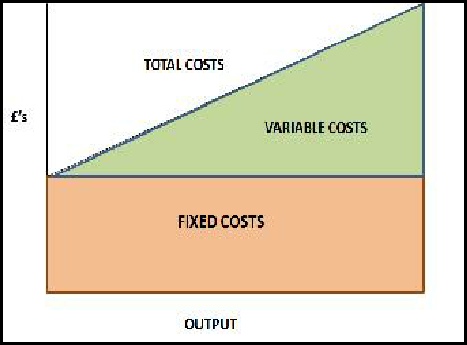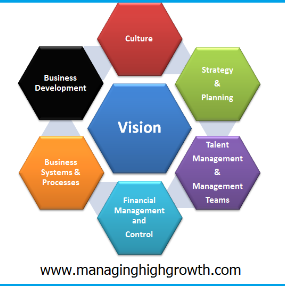HIGH GROWTH CHALLENGE: THE IMPORTANCE OF PLANNING
If there is one thing almost guaranteed to make most business owners eyes glaze over its talking about planning. I honestly believe that this is because they consider that planning is a waste of time. Planning itself is a discipline and certainly the first time it is undertaken it an be time consuming, but it teaches us an invaluable lesson. That in order to be successful we must look forward and attempt to predict what the future may hold and even though we may be wrong it is much better than not looking forward at all.

Whilst planning is important for all businesses it is vital in a high growth company. More importantly planning needs to be more thorough and detailed than in companies where growth is at a more leisurely pace. Its obvious really, issues come at you faster and more frequently in a high growth scenario and you and your management team need to be ready to deal with it. You can’t do this in a purely reactive mode, you and your management team need to have explored in detail the key linkages in your business and have some understanding of the potential stress points as well as solutions for different scenarios. If this seems a bit of overkill, it isn’t. Having been in the senior management team of a business that grew from 250 to 3500 staff in less than 10 years I know the pressures consistently fast growth puts on an organisation. One of the key reasons why so few businesses can consistently manage a high growth rate is because of this management commitment. It also demands that owners/directors have confidence in their management team and that they are able to properly delegate responsibility to this team.
SO HOW MUCH DETAIL IS ENOUGH?
The answer is as much detail as you can get. The more detail you can obtain the better. I’m not just talking about Profit and Loss information but key metrics that drive the business, for example production metrics, recruitment metrics, detailed overhead costs, detailed variable costs, machine performance, average earner income, average earner output, recruitment costs, sales cycle length, average order value, and so on. The consequence of this information is to provide you with a very detailed understanding of your business. It also offers you a broad range of levers to use in guiding your business through the inevitable ups and downs of life. Most importantly it gives you a number of early warning indicators that if acted upon will require only a gentle nudge on the tiller, rather than a last minute heavy handed yank.
SO NOW YOU’VE GOT IT WHAT DO YOU DO WITH IT?
Once you have all this information, you develop a reporting mechanism/model which requires all key members of your management team to understand report and manage their functions or business using this standard. This is vital to provide the management team with the same business information where ever they are in the organisation, it also means that whatever job they do they can quickly get to the key information because they will be familiar with the format. In fast moving business management regularly move around so need the support of a common model so they can quickly get to grips with their new position as the information and its format will be the same.
In a personal example I was relocated from the UK to Australia. When I arrived I was able to get up to speed very quickly because the business planning model used down there was exactly the same as that which I used in the UK!
It should become the basis of your regular management meetings because, as your knowledge of the businesses model and mechanisms increases, you will be able to more accurately predict company performance and be better able use the information to avoid impending difficulties.







 For More Information Contact Us
For More Information Contact Us 








 For More Information Contact Us
For More Information Contact Us 
